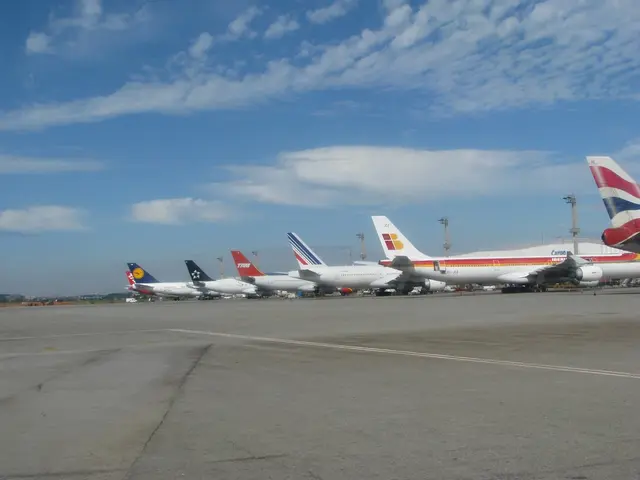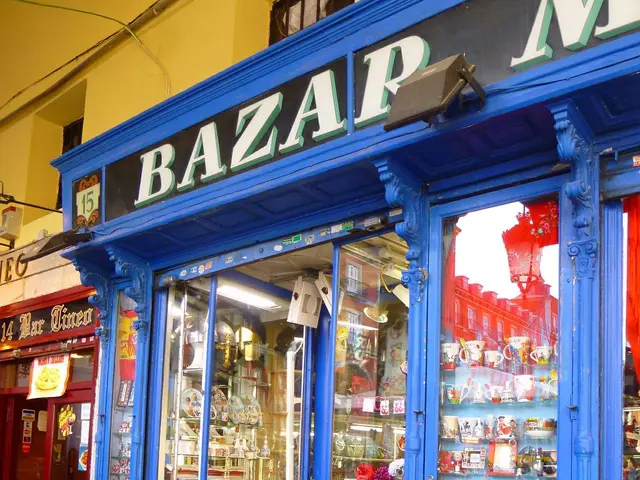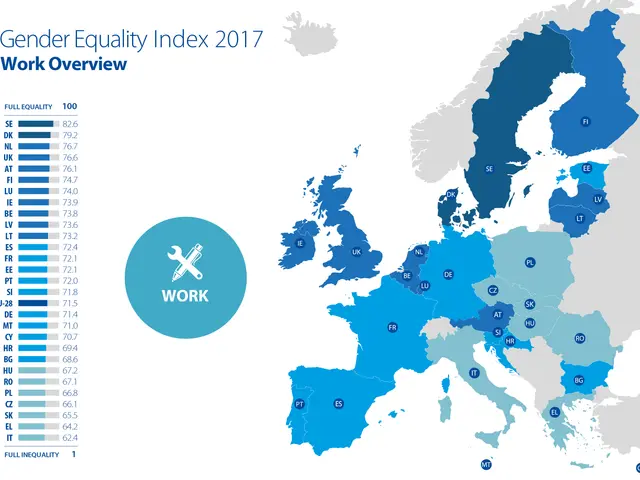Stagnation in Rail Freight Traffic Shift in Germany
Freight transport market share in the rail sector shows signs of plateauing - Rail transportation's freight share remains static.
Germany seems stuck in its efforts to boost rail freight traffic. In 2023, rail's slice of the cargo transport pie only shrunk marginally to about 20%, according to a recent sector report by the Monopolies Commission on rail [1].
, the shift towards rail appears minimal, unlike what was hoped for. It's not just rail transport, but overall cargo transport saw a decline last year, attributed to cyclical demand reductions and cost increases as per the report. Previous plans by the federal government aimed to have around a quarter of all cargo transport on rails by 2030 [2]. However, the new CDU-led government hasn't set such a target yet.
The authors of the sector report comment that rail's share in total transport performance falls short of political aspirations. They also note that the positive competitive progress has hit a roadblock [1].
The Monopolies Commission urges the government to establish clear political objectives for rail and to monitor Deutsche Bahn's (DB) distribution of funds from the planned infrastructure fund more closely. This is to prevent the funds from being used to boost DB's in-house transport companies and ensure they're utilized for maximum economic advantage. Independent scrutiny with demonstrated expertise is needed [1].
A look at the current scene reveals ongoing projects centered on promoting rail freight:
- Innovative Logistics Solutions: Companies like DB Cargo are demonstrating eco-friendly solutions at events like the transport logistic fair in Munich [3].
- International Rail Corridors: Efforts are being made to establish international rail corridors, such as the Eurasian Corridor, linking Europe, China, and Central Asia [3].
- Sustainable Transport Concepts: TFG Transfracht offers eco-friendly port-to-door solutions, focusing on reduced CO₂ emissions through TFGeco solutions [3].
Despite these initiatives, there are obstacles to overcome, including infrastructure issues and regulatory framework challenges [3]. The new CDU-led government has proposed improvements to the rail network, unbundling Deutsche Bahn, establishing a new legal basis for public transport financing, and increasing Public-Private Partnership (PPP) activity, which could attract more investment in rail infrastructure projects [2].
The new Community policy concerning the rail industry in Germany needs to appoint clear political objectives for rail, as per the Monopolies Commission's suggestion, to boost rail freight traffic and ensure optimal use of finance allocated for rail infrastructure development. Additionally, vocational training programs focused on the rail sector could provide the necessary workforce to manage and operate the improved public-transit systems, contributing to the transportation sector's growth during the transformation of the rail network.








